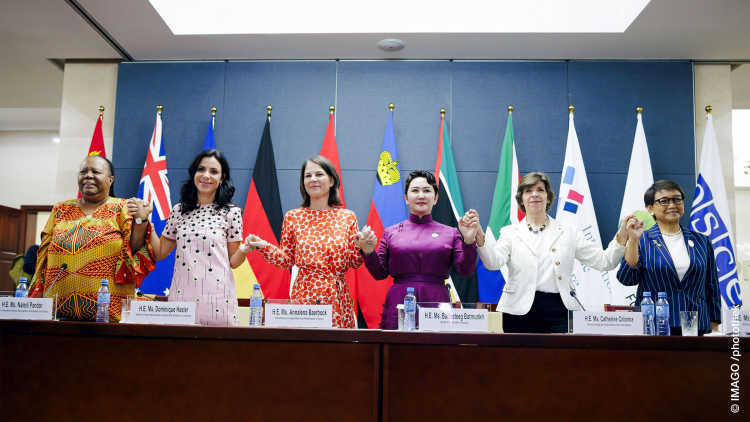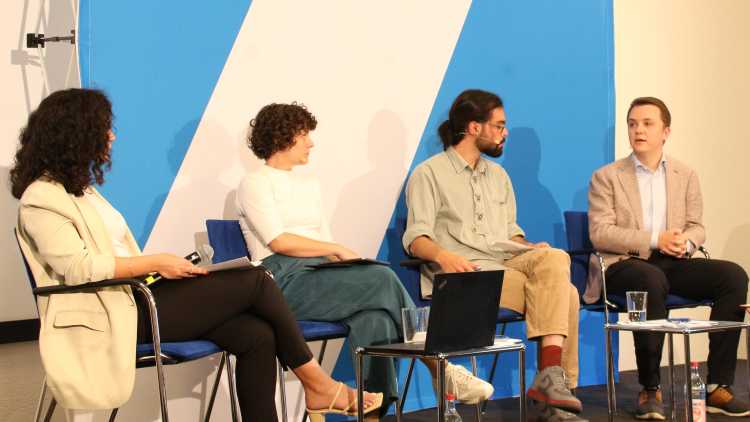- Home
- Events
- GIGA Forum
- Can Germany’s Feminist Foreign Policy Work in Afghanistan, Iran, and Ukraine?
GIGA Forum
Can Germany’s Feminist Foreign Policy Work in Afghanistan, Iran, and Ukraine?
Date
13/09/2023
Start
06:00 p.m. (CEST)
End
07:30 p.m. (CEST)













When the German Foreign Ministry launched its guidelines on "Feminist Foreign Policy" (FFP) in March 2023, reactions were split. Advocates welcomed the promised shift from "masculine" conceptions of foreign policy towards a more human-centric and inclusive foreign policy; one that has the potential to encompass marginalised subjects and place their experiences at the centre of foreign policy conduct. Sceptics criticise the guidelines, though, for being vague and inconclusive – especially amid the current global crises of the war against Ukraine and rising authoritarianism ‒ that could challenge this new direction in German foreign policy.
What exactly does a feminist viewpoint mean for Germany’s foreign policy towards Afghanistan, Iran, and Ukraine, countries mentioned specifically in the foreword to the guidelines? Iran has been undergoing a revolutionary process since September 2022 with women and minorities fighting for their basic human rights. From heightened gender-based violence to widespread food insecurity, Ukrainian women have disproportionately suffered as Russia’s invasion of Ukraine continues to rage on. Women have been marginalised in Afghanistan ever since the Taliban returned to power in August 2021 meanwhile. How can an FFP reconcile human rights issues with Realpolitik and navigate around the inherent contradictions here? For instance, preventing a nuclear Iran and containing migration flows from Afghanistan to Europe have largely dominated the mode of engagement with the latter two countries despite the demands of civil society. To what extent is a German FFP able to change, then, the "rules of the game" and make foreign policy more inclusive and humane in practice?
In this GIGA Forum, experts address these key questions. We discuss possibilities as well as obstacles regarding Germany’s FFP and how a more sustainable approach can be established here, one where human rights and human security are at the heart of foreign policy decision-making.
Speakers: Hamid Talebian is a Doctoral Researcher at the GIGA Institute for Middle East Studies and at the Department of History of Universität Hamburg.
Niklas Balbon is a Research Associate at the the Global Public Policy Institute (GPPi) in Berlin.
Barbara Mittelhammer is a Policy Analyst focusing on human security, women, peace and security, and feminist foreign policy.
Dr. Nazir Ahmad Yosufi is a Research Fellow at the GIGA Institute for Asian Studies. Moderator: Diba Mirzaei is a Doctoral Researcher at the GIGA Institute for Middle East Studies.
Organisers
Address
GIGA, Neuer Jungfernstieg 21 (room 243), 20354 Hamburg, Germany, and online
Language
English
Registration required












